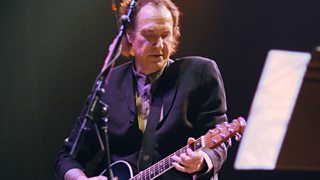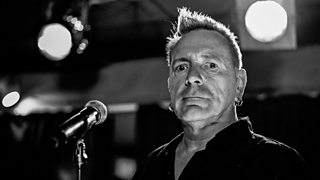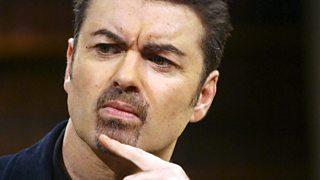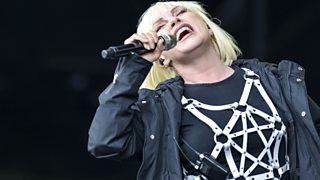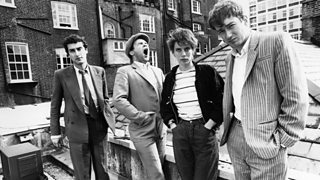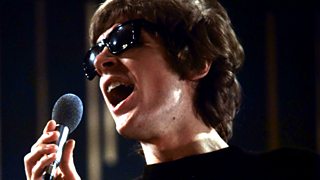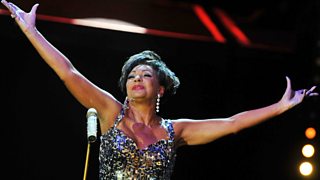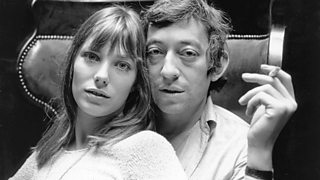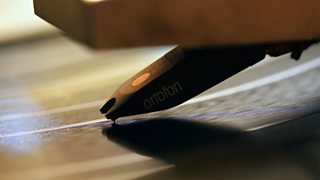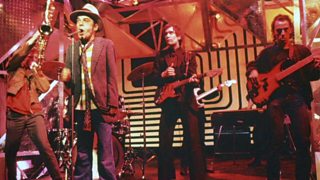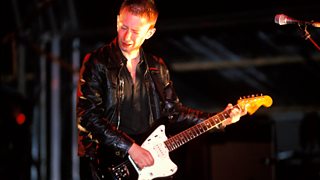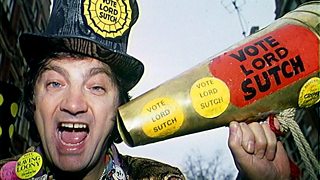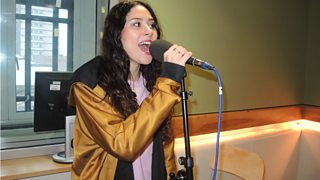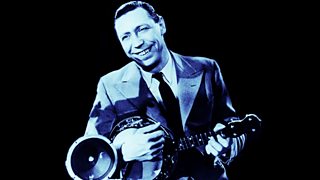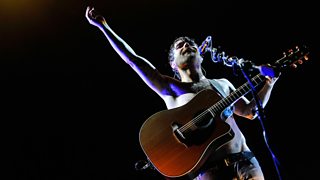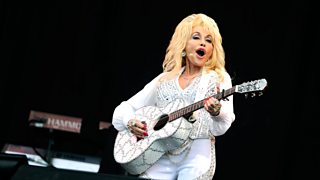16 songs banned by the ΒιΆΉΤΌΕΔ

The Kinks β Lola
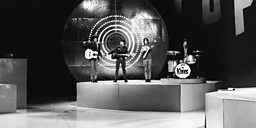
Written by singer , Lola is about a relationship between a man and a βwomanβ who turns out to be a transvestite.
But it wasnβt this gender confusion that worried the ΒιΆΉΤΌΕΔ. The song was banned for including the words βcoca-colaβ which was against their policy on product placement.
Davies had to interrupt the bandβs American tour to fly back to London to re-record the lyric as βcherry-colaβ for the single release.
- (ΒιΆΉΤΌΕΔ Music)
The Sex Pistols β Anarchy In The UK

The Sex Pistols' debut single, Anarchy in the UK was banned following their controversial appearance on the TV news programme, Today.
The song had already been played on the radio but the band had caused such outrage by swearing on television that they were banished from the airwaves.
Their next single, God Save The Queen was also banned but it didnβt stop The Sex Pistols storming their way up the charts.
- (ΒιΆΉΤΌΕΔ Music)
John Leyton β Johnny Remember Me
This was the first and only No.1 hit for singer and actor John Leyton who starred in the TV series, .
The song tells the story of a young man haunted by his dead lover and was one of many 'death discs' popular at the time but banned by the ΒιΆΉΤΌΕΔ.
Other censored 'splatter platters' include, Tell Laura I Love Her by Ray Ricky Valance, Teen Angel by Mark Dinning and Terry by Twinkle.
- (ΒιΆΉΤΌΕΔ Music)
George Michael β I Want Your Sex
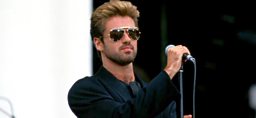
This was George Michaelβs first solo single after splitting from school pal , the other half of pop duo . At the time it was one of the few songs to include the word 'sex' in the title and the ΒιΆΉΤΌΕΔ restricted play of the song and video for being overtly sexually suggestive.
Some critics argued that the song was promoting casual sex at a time when AIDS was of great concern. But George released a statement to the contrary β I Want Your Sex is about attaching lust to love, not just to strangers.
It would be more than a decade before George would make a statement about his own sexuality.
- (ΒιΆΉΤΌΕΔ Music)
Tom Robinson β Glad To Be Gay

Back in 1976 Tom Robinson was out, loud and proud. This song written originally for a gay pride march went on to become Britainβs unofficial gay anthem.
Released on an EP, the ΒιΆΉΤΌΕΔ refused to play it on , although broke rank and played the track anyway, as often happened!
Robinson later confused some journalists by marrying a woman and in 1996 added an extra verse to the song: βWell if gay liberation means freedom for all, a label is no liberation at all. Iβm here and Iβm queer and do what I do, Iβm not going to wear a straghtjacket for you.β
- (ΒιΆΉΤΌΕΔ Music)
Blondie - Atomic

This was one of 67 songs deemed unsuitable for broadcast by the ΒιΆΉΤΌΕΔ during the first Gulf War.
Boom-Bang-a-Bang by Lulu, Bang Bang by BA Robertson and Cherβs Bang Bang (My Baby Shot me Down) were among the explosive sounding songs on the list.
Maria Muldaurβs 1974 hit, Midnight at the Oasis, was also considered potentially offensive, along with Iβll Fly for You by Spandau Ballet and Everybody Wants to Rule the World by Tears for Fears.
- (ΒιΆΉΤΌΕΔ Music)
Gang Of Four β I Love A Man In Uniform
This song was on its way up the charts until the ΒιΆΉΤΌΕΔ banned it as inappropriate when British troops were entering the Falklands War.
But this post-punk band had been banned before. Their 1979 single, At ΒιΆΉΤΌΕΔ Heβs a Tourist was also censored by the ΒιΆΉΤΌΕΔ.
The band walked off Top of the Pops minutes before performing when they were asked to replace the lyric βrubbersβ with βrubbishβ β βrubbersβ was considered too risquΓ© for the ΒιΆΉΤΌΕΔ.
- (ΒιΆΉΤΌΕΔ Music)
Scott Walker β Jackie
This was the first record to be banned by the new Radio 1. Walkerβs cover of the classic was banned because of homosexual references in the lyrics. The ΒιΆΉΤΌΕΔ was offended by the reference to βauthentic queersβ and βphony virginsβ.
That same year the Sexual Offences Act was passed in England and Wales, decriminalising sex acts between two men over the age of 21 in private.
In 1991 covered the song and performed it on primetime television.
- (ΒιΆΉΤΌΕΔ Music)
Shirley Bassey β Burn My Candle
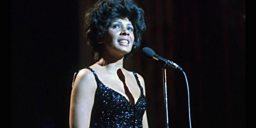
This was Welsh singer Shirley Basseyβs debut song when she was just 19 years old. However the word βsexβ in the lyrics was considered too salacious and the song was banned by the ΒιΆΉΤΌΕΔ.
This initial set back didn't do Shirley any harm: she's went to sell more that 135 million records over seven decades.
- (ΒιΆΉΤΌΕΔ Music)
Heaven 17 β (We Don't Need This) Fascist Groove Thang
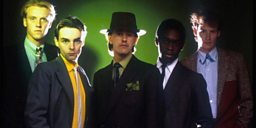
This was the first single to be released from Heaven 17βs debut album, .
The song was banned by the ΒιΆΉΤΌΕΔ after concerns that the lyrics libelled the then President of the United States of America, Ronald Reagan.
The synth-pop pioneers are still performing and, with the ban now lifted, was recorded in 2010 for ΒιΆΉΤΌΕΔ Radio 6 Music.
- (ΒιΆΉΤΌΕΔ Music)
Serge Gainsbourg & Jane Birkin β Je t'aimeβ¦ moi non plus
Birkin and Gainsbourg were in a relationship at the time of this singleβs release, but Gainsbourg had written and recorded the song two years earlier for his then girlfriend .
Bardotβs husband heard the track and Bardot subsequently pleaded with Gainsbourg not to release the song.
It was banned by the ΒιΆΉΤΌΕΔ for its overtly sexual content.
- (ΒιΆΉΤΌΕΔ Music)
Lil Louis β French Kiss
Some of the best panting in pop comes from this house track.
It was a hit in night clubs around the world but the change in tempo and sexual moaning were too hot for the ΒιΆΉΤΌΕΔ to handle.
Despite a ban it still reached number 2 in the UK charts.
- (ΒιΆΉΤΌΕΔ Music)
Ian Dury and The Blockheads β Spasticus Autisticus
Ian Dury wrote this song as a protest against the International Year of Disabled Persons. As a polio sufferer he found this label patronising.
The ΒιΆΉΤΌΕΔ denied the song airplay, citing that the lyrics: βI wibble when I piddle 'cos my middle is a riddleβ were offensive.
In 2012 the song was used in the opening ceremony to the Paralympic Games.
- (ΒιΆΉΤΌΕΔ Music)
Radiohead β Creep

First released in 1992, Creep was rarely given airplay as it was considered too depressing! The song also contains the f word which was not acceptable for the ΒιΆΉΤΌΕΔ.
The band recorded an alternative, substituting the offending word with βveryβ. The song was re-released in 1993 where it reached number seven in the UK charts.
- (ΒιΆΉΤΌΕΔ Music)
Screaming Lord Sutch β Jack The Ripper
Produced by the legendary , this song was banned by the ΒιΆΉΤΌΕΔ for being in bad taste.
Lord Sutch is better known as the founder of the Monster Raving Loony Party, but back in 1963 he stood in his first election representing the National Teenage Party.
Itβs unknown if this song helped increase his vote.
- (ΒιΆΉΤΌΕΔ Music)
Eliza Doolittle β Walking On Water
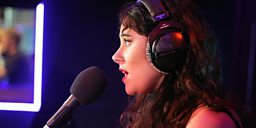
The young singer-songwriter ran into trouble with the ΒιΆΉΤΌΕΔ due to the religious content in this song.
Prior to an appearance on , Doolittle was asked to change the lyric: βSometimes I wish I was Jesusβ to βSometimes I wish it was easy to get my Air Max on and run across the sea to you.β
There was, however, no problem with the reference to a popular running shoe...
- (ΒιΆΉΤΌΕΔ Music)
